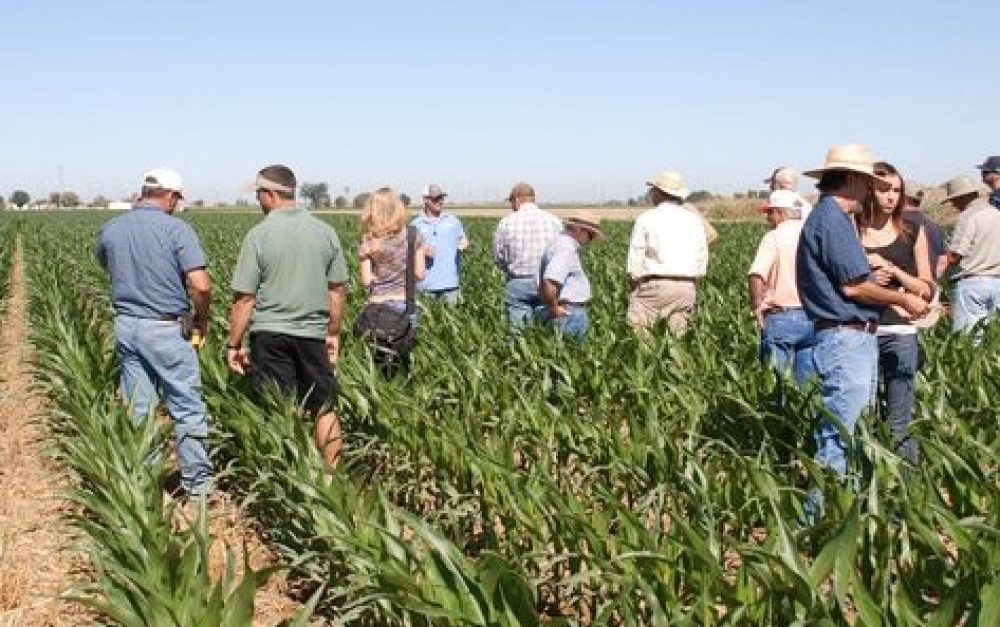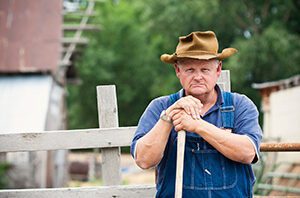The Farm Bill is again in motion, and budget negotiations are first up. This past week the House and Senate passed different versions of a Continuing Resolution (CR), the short-term budget fix that will keep programs afloat for the coming year.
The House version fails to fund key conservation programs or provide support for rural communities. The Senate did a bit better, but their version still leaves many important programs stranded. Between now and March 27 Congress will be reconciling these two versions of the budget, and we'll be pressing hard for decisions that support smart, innovative farming. We’ll keep you posted as the process unfolds and action is needed.
The good news is that the Senate version of the CR does fix the technical mistake made last fall that prevents farmers from signing up for the Conservation Stewardship Program (CSP) this year. The mistake left over 9,000 farmers high and dry.
This no-cost fix — that we'll need to push hard to keep in the final version — will restore access to our nation’s largest working lands conservation program. The CSP rewards farmers and ranchers for implementing farming practices that benefit everyone by protecting vital soil, water and air resources.
Stranded programs, dangerous GE rider
We'll also be pressing to restore funding for innovative Farm Bill programs that were left unfunded by the current nine-month farm bill extension. Our colleagues at the National Sustainable Agriculture Coalition outline the nuts-and-bolts details here, including what programs have been left stranded, who's affected and what's at stake.
Unfortunately the Senate version of the CR includes a dangerous GE crop rider — we've worked hard to block these in the past. The current rider, clearly designed to protect the interests of the biotech companies like Monsanto, forces USDA to ignore judicial rulings on the economic and environmental impacts of GE crops, undermining the ability of farmers to grow non-GE crops if they so choose.
Farmers to Congress: We want a better Farm Bill
Last week 60 independent family farmers, ranchers, and sustainable agriculture advocates from 24 states met with more than 105 legislative offices in Washington DC. They urged Congress to restore funding for critical sustainable agriculture programs and pass a Farm Bill that helps farmers protect vital resources and maintain vibrant rural communities.
We've been saying it for months now: Congress needs to create a Farm Bill that invests wisely in the future of healthy farms, food, and people; protects our precious resources; and levels the playing field for all farmers. Small family farms should have a fair chance at making a decent living and grow the economies of rural communities throughout the country.
To meet these important — and reachable! — goals, Congress needs to focus attention on bills like these as part of the Farm Bill debates:
- The Beginning Farmer and Rancher Opportunity Act, introduced in last year's Farm Bill proposals, would help the next generation of farmers overcome important barriers. These include limited access to land and markets, hyperinflation in land prices, high input costs, farm and tax policy disadvantages, and lack of training.
- The Local Farms, Food, and Jobs Act was also introduced last year. This bill would help growers respond to a booming demand for local and regional food. Significant infrastructure, marketing, and information barriers are still limiting growth in local and regional agriculture. This bill would ensure that farmers and entrepreneurs can fully seize the economic opportunities inherent in local and regional food systems.
So in short, Farm Bill work is gearing up again. Please stay tuned to see what opportunities arise for you to help urge Congress to establish food and farming laws that protect the environment while producing and distributing healthy food to all. We want a law that also creates good food and agricultural jobs throughout the country – urban and rural, young and old, experienced and novice.








